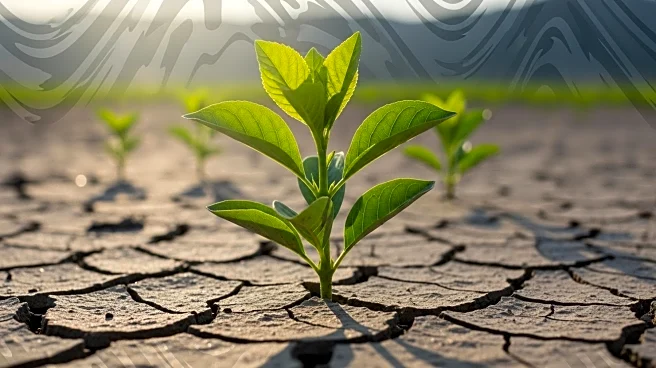What's Happening?
Climate activists are facing a critical juncture as traditional methods of advocacy and mobilization appear less effective in the current environmental and political landscape. Bill McKibben, a prominent figure in the climate movement, is exploring new avenues such as Sun Day, an initiative aimed at promoting solar energy. However, he acknowledges the uncertainty of its future and the need for fresh leadership. Young activists, like Neubauer, are questioning how to reignite the enthusiasm seen in pre-pandemic student strikes, while others, like Prakash, emphasize the role of extreme weather events in driving political action. The movement is also considering legal strategies, such as the Make Polluters Pay campaign, which targets fossil fuel companies for their contributions to emissions.
Why It's Important?
The evolving strategies of climate activists are crucial as they seek to address the increasing frequency and severity of natural disasters linked to climate change. The shift towards legal accountability for polluters and broader economic arguments for renewable energy could reshape public policy and industry practices. These efforts aim to engage a wider audience beyond traditional environmental circles, potentially influencing legislative and corporate actions. The success of these initiatives could lead to significant reductions in emissions and advancements in sustainable energy solutions, impacting both the environment and the economy.
What's Next?
The climate movement is likely to continue exploring diverse strategies to maintain momentum and achieve tangible results. Activists may focus on building coalitions that include non-traditional allies, such as economic stakeholders and legal experts, to strengthen their campaigns. The outcome of initiatives like Make Polluters Pay could set precedents for future environmental litigation. Additionally, the movement may prioritize community resilience and recovery efforts in response to natural disasters, aligning with broader societal needs.
Beyond the Headlines
The shift in climate activism reflects deeper cultural and ethical considerations, as activists grapple with balancing urgent environmental realities with inspiring visions for the future. This transition may influence public perception of climate issues, encouraging a more nuanced understanding of the complexities involved. The movement's adaptability and willingness to embrace new tactics could serve as a model for other social movements facing similar challenges.









